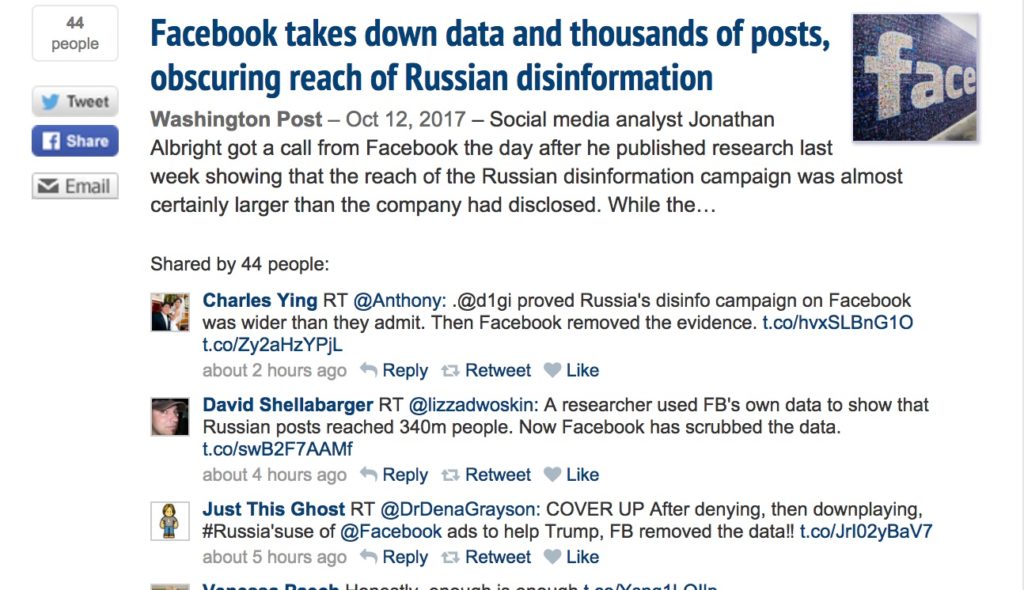There are really only two possible explanations for the crisis now beginning to engulf Facebook. One is that the company’s founder was — and perhaps still is — a smart but profoundly naive individual who knows little about the world or about human behaviour. The other is that he is — how shall I put it? — a sociopath, indifferent to what happens to people so long as his empire continues to grow.
I prefer the former explanation, but sometimes one wonders…
Consider Free Basics — the program to bring Internet access to millions of people in poor countries. It works by having Facebook pre-installed on cheap smartphones together with deals with local mobile networks that traffic to the Facebook app will not incur any data charges.
The cynical interpretation of this is that it’s a way of furthering Zuckerberg’s goal of replacing the Internet with Facebook, creating the ultimate global walled garden. The charitable spin is the one Zuckerberg himself put on it — that Free Basics provides a way to connect people who would otherwise never go online.
Either way, the effects were predictable: new users in these countries think that Facebook is the Internet; and Facebook becomes the major channel for news. The NYT has a sobering report on what happened in Myanmar, where Facebook now has millions of users.
“Facebook has become sort of the de facto internet for Myanmar,” said Jes Kaliebe Petersen, chief executive of Phandeeyar, Myanmar’s leading technology hub that helped Facebook create its Burmese-language community standards page. “When people buy their first smartphone, it just comes preinstalled.”
But since the company took no editorial responsibility for what people used its service for, when it transpired that it was being used to stir up ethnic hatred and worse, it seemed unable to spot what was happening. “Facebook”, reports the Times,
has become a breeding ground for hate speech and virulent posts about the Rohingya. And because of Facebook’s design, posts that are shared and liked more frequently get more prominent placement in feeds, favoring highly partisan content in timelines.
Ashin Wirathu, the monk, has hundreds of thousands of followers on Facebook accounts in Burmese and English. His posts include graphic photos and videos of decaying bodies that Ashin Wirathu says are Buddhist victims of Rohingya attacks, or posts denouncing the minority ethnic group or updates that identify them falsely as “Bengali” foreigners.
It’s the same story as everywhere else that Facebook has touched. A company that built a money-making advertising machine which gets its revenues from monetising user activity finds that sometimes that activity is very unsavoury and inhumane. And when this is finally realised, it finds itself caught between a rock and a hard place, unwilling to accept responsibility from the unintended consequences of its wealth-generating machine.

